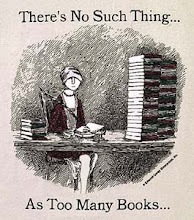 Lafcadio Hearn (Y. Koizumi) to Sentaro Nishida
Lafcadio Hearn (Y. Koizumi) to Sentaro Nishida
Kobe, April, 1896.
Dear Nishida, - It made me happy to get your letter, and to hear from you that you think I am beginning to understand the Japanese a little better. My other books have had success in Europe as well as America;--the leading French review (Revue des Deux Mondes) had a long article about me; and the Spectator, the Athenaeum, the Times and other English journals have been kind. Still, I am not foolish enough to take the praise for praise of fact,--feeling my own ignorance more and more every day, and being more pleased with the approval of a Japanese friend than with the verdict of a foreign reviewer, who, necessarily, knows nothing to speak of about Japan. But one thing is encouraging,--namely, that whatever I write about Japan hereafter will be widely read in Europe and elsewhere,--so that I may be able to do good. My first book is being translated into German.
I got a beautiful letter from Mr. Senke the other day, to which he has, I trust, by this time the answer,--in which I told him that I hope to see Matsue and Kizuki again in about another month. Setsu, mother, and the boy come with me. Kazuo is now much better--except morally;--he is more mischievous than ever. I want him to have as much of the sea this summer as he can bear. And I want to swim at Kizuki and Mionoseki, and to talk to you all I can--without tiring you.
I have been away. I have been at Ise, Futami, and nearly a week in Osaka. Ise disappointed me a little. The scenery is superb; but I like Kizuki better. At Ise there is so much money, - - such enormous hotels,--such modernization: the place did not feel holy to me, as Kizuki did. Even the miko won't show their faces for less than five yen. Besides, it was bitterly cold, and hurt my lungs. I came back sick. Osaka delighted me beyond words. Excepting Kyoto, it is certainly the most interesting city on this side of Japan. And I could never tell you how Tennoji delighted me--what a queer, dear old temple. I went to Sakai, of course,--and bought a sword, and saw the grave of the eleven samurai of Tosa who had to commit seppuku for killing some foreigners,--and told them I wished they could come back again to kill a few more who are writing extraordinary lies about Japan at this present moment. I would rather live a month in Osaka than ten years free of rent in Tokyo.
Speaking of Tokyo reminds me to tell you that my engagement with the university is not yet assured. Day before yesterday I had a letter from Professor Toyama that my becoming a Japanese citizen had raised a difficulty "which," he wrote, "we must manage to get over somehow." I wrote him that I was not worried about the matter, and had never allowed myself to consider it very seriously,--hinting also that I would not accept any low salary. What he will next write I don't know, and don't very much care. If Matsue were a little warmer in winter I should rather be teaching there. Indeed I think that even after a few years in Tokyo, I should be asking to get back to Matsue; and in any event I hope to make a home there. If I can get such a yashiki as I had--mean buy one for my own home--Matsue would be a very happy place to work and study in. Besides, if my health keeps fair, I can hope eventually to be able to travel in the coldest winter months, and then the Matsue climate would make no difference for me. In summer it is delicious. Even Setsu now thinks it better to live in the interior; and I shall be glad to escape from the open ports. I have seen enough of the foreigners here, and like them less than ever.
I should certainly like Mr. Asai very much, from your charming account of him; and, at any rate, I expect to see both you and him within forty days from this writing. If you think he would like a copy of 'Kokoro' it will make me very happy to send him one. As he has studied philosophy, however, I don't know what he will think of the chapters on the Idea of Pre-existence and the Worship of Ancestors. You know the school of thought that I follow is bitterly opposed; and I believe it is not honestly taught in any English establishment. In one or two American universities it is partly taught; but only the French have given it really fair attention abroad.
Lafcadio Hearn (Y. Koizumi).
P. S. It made me feel queer to be addressed by Prof. Toyama as "Mr. Yakumo Koizumi"!
-from The Life and Letters of Lafcadio Hearn by Elizabeth Bisland in 2 volumes (Boston: Houghton Mifflin, 1906) volume 2, p. 297-99.
 Charles Dickens to W. Wilkie Collins
Charles Dickens to W. Wilkie Collins


























